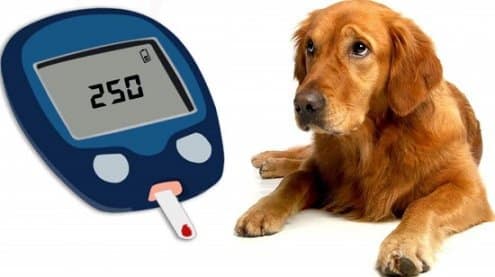Diabetes is a common ailment found in dogs, and the signs and symptoms are similar to that of diabetes in humans. While humans are prone to Type 2 diabetes, a condition where cells lose the ability to take up glucose from the blood, dogs are more likely to be diagnosed with Type 1 diabetes.
Type 1 diabetes is caused by insufficient or a complete lack of insulin. Similar in symptomology to Type 2 diabetes, the management is slightly different.
Be sure to watch your dogs for the following warning signs and symptoms:
Frequent Urination
The lack of insulin in the body leads to an excess accumulation of sugar. This results in increased activity of the kidneys, which try to compensate for the imbalance. The kidneys excrete excess glucose in the form of urine. This results in frequent urination, which is known as polyuria.
It is important to note that frequent urination is not always a symptom of diabetes. Other diseases, such as kidney failure, can also cause frequent urination. You must consult with your veterinarian for the correct diagnosis.
Increased Thirst
The effort put forth by the kidneys to excrete excess glucose through urination leads to increased thirst. The dog will drink excessive amounts of water to compensate for the loss of water, which is a condition called polydipsia.
Polyuria and polydipsia are interconnected. If you observe that your dog is drinking more water than usual, don’t hesitate to schedule an appointment at your veterinary clinic.
Increased Appetite
Lack of insulin depletes the body’s cells of energy, which increases the appetite. Often, dogs will become excessively hungry and eat as much as possible. While many dogs are natural beggars, keep your eye out for behaviour that is not normal for your pooch. It is recommended to have any abnormal increase in appetite, or polyphagia, evaluated by your veterinarian.
Weight Loss
Despite the increase in appetite, dogs with diabetes will not utilize the glucose in their food. This triggers a balancing mechanism in the body where fat and muscle begin to deplete. After a significant amount of depletion of fat and muscle, the dog will begin to lose weight.
Conclusion
Identifying the warning signs of diabetes in dogs is key to getting an efficient and timely diagnosis.
Additional symptoms of diabetes can include the following:
- Hair and skin infection
- Lethargy
- Anorexia
- Cataracts
If you notice anything abnormal for your pet, don’t hesitate to consult your veterinarian


